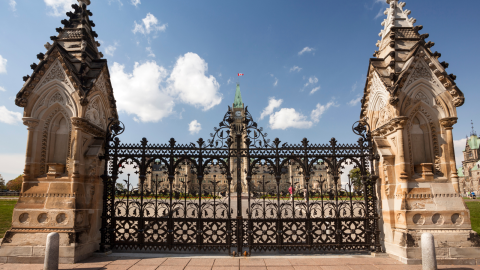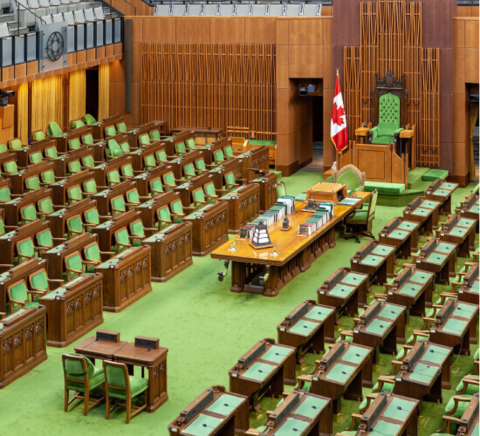
Submission to the House of Commons Standing Committee on Finance
Pre-Budget Consultations for the 2024/5 Federal Budget
Key Recommendations:
Canadians for Tax Fairness recommends the following priorities for the 2024/5 federal budget:
- Raise the corporate income tax rate.
- Immediately implement a minimum tax on corporate profits.
- Create a windfall profit tax.
- Eliminate the preferential treatment of capital gains over worker income.
- Require public disclosure of country-by-country reporting of transnational corporations headquartered or operating in Canada.
- Further increase funding for the CRA to ensure compliance by the wealthiest individuals and largest corporations.
- Commit to a public review of Canada’s tax system that considers how it can be used to help reduce inequality, promote beneficial investment, and support transition to a just, net-zero emission economy.
Introduction
Canadians continue to experience fallout from the pandemic. Food price inflation remains at a 40 year high. Interest rate hikes are driving up housing costs. Over half a million people dropped below the poverty line in 2021. Meanwhile, many of Canada’s biggest corporations have reaped record profits while simultaneously avoiding tens of billions in taxes.
These pandemic-induced struggles are compounded by on-going challenges from an aging population and seriously strained health care system, as well as the worsening climate crisis. Climate disasters from wildfires to floods are putting the lives of Canadians at risk, while also destroying resources and infrastructure. As usual, all of these problems hit the most vulnerable communities the hardest.
A just society must invest in its population. This provides vital support for all Canadians, especially those enduring hardships. However, it also creates valuable assets and propels economic activity. We need a more just tax system to reduce inequality and create the fiscal space for on-going public investment in Canadian well-being.
Raise the corporate income tax rate
The federal corporate income tax (CIT) rate has been at 15% since 2008. Both Conservative and Liberal governments have repeatedly reduced the rate, promising that it would induce investment and create better jobs. However, less corporate profit goes back into productive investment now than before the rate cutting began.
The federal CIT rate should be raised to 20%.
At 20%, the rate would remain historically low. It would also be lower than the U.S. federal rate, which is at 21%. The PBO estimates that raising the rate to 20% would generate $16 billion in additional revenue.
Immediately implement a minimum tax on corporate profits
The average provincial-federal CIT rate is 25.6%. However, Canadian corporations routinely pay at much lower rates. In 2021, the combined effective tax rate (ETR) for Canada’s 123 largest corporations was just 15%. For some companies, it is routinely much lower. Among the 123 largest companies, 24 had an ETR below 10% for 2017-2021.
A minimum tax of 15% on reported corporate profits should be implemented immediately.
In 2022, the government said it intends to implement Pillar II of the OECD’s Inclusive Framework, which creates a minimum tax on multinational enterprises (MNEs). However, it does not project revenue from the tax until 2026/7. By contrast, the United States will collect revenue this year from its own minimum corporate tax.
The OECD’s minimum tax is intended to address the problem of base erosion and profit-shiting, which involves MNEs claiming profit in low-tax jurisdictions as a way to avoid taxes. However, exploitation of tax havens is not the only problematic form of tax avoidance. Canada’s minimum tax should apply to both domestic and transnational corporations.
The government projects $2.8 billion in revenue from the Pillar II minimum tax beginning in 2026. However, if a minimum tax had applied in 2022 to all publicly-listed Canadian with average income greater than $1 billion, it would have brought in over $5 billion.
Create a windfall profit tax
The pandemic drastically increased Canadian corporate profits. Pre-tax profits in 2021 and 2022 were $620 billion and $685 billion, respectively. The previous high was $440 billion in 2018. In both years, the corporate profit margin was above 12%, compared to an average of 8.2% over the decade before the pandemic.
Many corporations were able to take advantage of pandemic-induced economic turmoil to hike markups. Other corporations benefited from spikes in commodity prices. Regardless of the method, hundreds of billions of dollars in unearned extra profit fell into corporate hands.
The government recognized that some corporations had unearned income when it passed the Canada Recovery Dividend. However, the tax was far too limited. Banks and life insurance companies were not the only ones to reap windfall profits. Corporations benefited from the financial supports offered to Canadians during the pandemic. A windfall profit tax would return some of those funds to public hands.
Eliminate the preferential treatment of capital gains over worker income
In 1966, the Royal Commission on Taxation—popularly known as the Carter Commission—recommended full inclusion of capital gains for calculating income taxes in order to make the tax system more fair. Currently, only half of capital gains are included. The majority of capital gains go to the richest 10% of taxfilers, which makes this preferential treatment egregiously unfair. It also undermines the progressiveness of Canada’s income tax system.
The PBO estimates each five percentage point increase in capital gains inclusion would add $2.5 billion to tax revenues. Based on PBO estimates, full inclusion, with an adjustment for inflation, would increase tax revenues by over $20 billion.
Require public disclosure of country-by-country reporting of transnational corporations headquartered or operating in Canada
Large, powerful institutions must be accountable to the people whose lives they affect. This applies to corporations as much as governments. MNEs are required to provide tax authorities with country-by-country reporting (CbCr) of their financial data as part of improving their accountability. However, this information should be made available to the public to further increase transparency and accountability. Currently, we cannot tell how much revenue, profit, or tax MNEs like Amazon and Meta claim in Canada. The government has accepted that public disclosure is the best practice when it comes to the planned beneficial corporate ownership registry. It should recognize that the same applies to CbCr.
The Australian government planned to introduce public disclosure of CbCr this year. However, faced with intense corporate pressure, it has delayed that plan. Canada should join with Australia to demonstrate that it is on the side of the public and not corporate bullies.
Corporate opponents of CbCr claim it would expose trade secrets. However, tax planning should not be considered a legitimate trade secret. Any MNE doing legitimate business and reporting legitimate financial information should have nothing to hide.
Further increase funding for the CRA to ensure compliance by the wealthiest individuals and largest corporations
In 2022, the PBO found that the government has failed to increase funding for the CRA after accounting for inflation. Budget 2023 did not address this problem. The CRA’s job has been getting more difficult for years as ultra-wealthy individuals and corporations have used novel, and increasingly complex, forms of tax planning that push the boundaries of our tax system.
Research, including from the PBO, shows that investments in tax authorities more than pays for itself. New research from the United States found that an additional dollar spent auditing taxfilers with incomes above the 90th income percentile generates $12 in revenue. This is more than twice the return from a dollar spent auditing incomes below the 50th percentile.
The government needs to follow through on its promise to provide adequate resources to the CRA. These funds should prioritize compliance and enforcement of tax responsibilities for the highest income individual and corporate taxfilers, which is both more fair and will produce the greatest revenue.
Underfunding of the CRA is of even greater concern as the government has introduced significant new tax credits as part of its climate action. This will require significant new expertise and assessment capacity to ensure these credits are being claimed appropriately.
Commit to a public review of Canada’s tax system that considers how it can be used to help reduce inequality, promote beneficial investment, and support transition to a just, net-zero emission economy
It has been 60 years since the government established the Carter Commission to examine Canada’s tax system. The commissioners were tasked with determining how to make the system more fair and efficient. Our economy has evolved significantly since then. This evolution has necessitated new tax policies and practices, which added complexity to the system.
Increased tax complexity provides new opportunities for wealthy individuals and powerful corporations to create and exploit tax avoidance loopholes. Inequality has worsened in Canada since the Carter Commission issued its report. The exploitation of tax complexity likely contributed to that worsening inequality. At the very least, it indicates the system is falling short on ensuring income and wealth is more fairly distributed.
The climate crisis has created yet more challenges that the government is using the tax system to address. Most prominently, the carbon tax has been a contentious addition to our tax system. Further, as mentioned above, the government is also using tax credits to incentivize investments in clean energy, clean technology, carbon capture, and more.
Given the evolution of our economy, the worsening of inequality, and the government’s use of the tax system to deliver climate action, a comprehensive, public review of Canada’s tax system is overdue.
